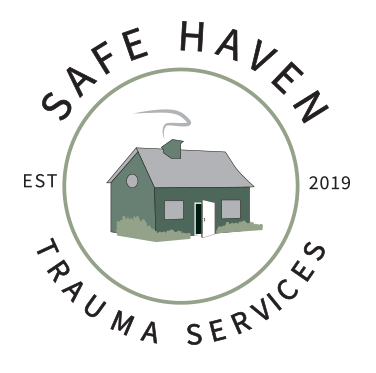The Sacred Wonder of the Therapeutic Relationship
I once went to the wrong therapist. I didn’t know she was the wrong therapist at first. I kept up with our weekly meetings and came prepared and ready to share my story. I allowed myself to fully open up and to work through my hurts and struggles — to unleash the beast I had been containing inside for so long. She didn’t say anything overtly wrong; she didn’t make any ethical blunders; I didn’t even dislike her…but something was off. Every time I was on the way to a session it felt like I had a bowling ball sized knot in my stomach. Something in my gut told me this wasn’t the person who I needed to hear my story, and this wasn’t my space to heal.
Even when our minds aren’t sure, our bodies will tell us the truth on just about anything. So, of course, finding the right therapist is the same way. The first time I walked into my current therapist’s office, I knew that it was my safe place. I was immediately met with a feeling of peace, a safe presence, and an empathetic and caring demeanor. I wasn’t rushed to share my story. She patiently listened as I allowed myself to come into the space, and I felt myself beginning to heal.
As Irvin Yalom, widely known psychiatrist and author, says in his book Love’s Executioner, “It’s the relationship that heals.” In therapy, the relationship between therapist and client is the most important part of the process. As we bring our rawest, most vulnerable selves into this new realm, we need to feel as though we are met with safety and compassion. We need to feel secure, seen, and heard. We need to feel it deeply and fully, in a way that transcends our mind’s knowing. Since working through our traumatic experiences can be extremely painful, hard, and dysregulating, it is even more important to be in a safe therapeutic relationship as we unleash the past and figure out how it fits into the present.
A “good” therapeutic alliance should feel safe, supportive, and nonjudgmental. It should have tones of empathy, encouragement, and connection. Most of all, it should be relational. Though in the age of Sigmund Freud, the therapist was a blank slate who stared at you as you unleashed your inner dialogue while laying on a couch, years of research now suggest that having a therapist who is presently in relationship with you is one of the keys of the therapeutic process’ success.
Your relationship with your therapist can be one of the most intimate relationships you have. Our therapists can offer us things like connection, empathy, emotional attunement, support, and care in ways that we may not have gotten in the past or present. We share our hurts and struggles with them; some we may have never even shared with anyone else. This does not mean that there aren’t any boundaries — in fact, it means the opposite. Boundaries are a tool for growth in our therapeutic process, part of what makes therapy so safe. Of course, you want to feel connected to your therapist, but if there isn’t a firm line between where you end and they begin or your relationship with your therapist doesn’t feel any different than the one with your best friend, boundaries may not be in place. Therapists set boundaries to give you autonomy, consent, and safety in relationship.
Additionally, the counseling space does not have to be one absent of conflict. In fact, it is good for a healthy amount of conflict to come up, this gives you a space to healthily and safely work through things that may normally feel too hard to work through. Your therapist appreciates your honest reactions and disclosures because they help identify where sensitivities and triggers are. Since therapy is a microcosm of the world, a tiny snapshot that reveals exactly what our lives and relationships are outside of the therapeutic bubble, it helps us to practice approaching these situations when they inevitably appear in “real” life.
I would be lying if I said I didn’t still get jitters every time I get ready for my own therapy, but if feels different. I am nervous because I know that what I am about to do is going to be hard and takes a lot of bravery. Regardless, I am excited, because I know I am on the way to a space where I can be my full self and that will be met with emotional attunement, empathy, and care.
The reason I am telling you this is because I want you to experience the full extent to which therapy can be beneficial. I want you to find a helping professional who makes you feel safe and cared for enough to do that. I want you to experience therapy in a way in which your soul feels safe to unravel for a bit – somewhere you feel safe, seen, heard, and deeply understood. It’s the relationship that heals.

